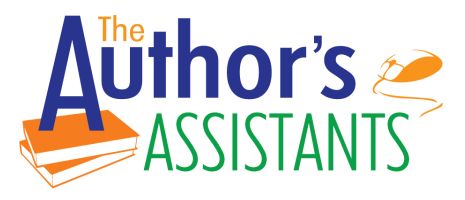Oct 18, 2015
Here’s and insightful guide to setting up your copyright page for your ebook. Honestly, I never thought about including the ISBN in the metadata. Brilliant idea!
Digital Book World (DBW) has great information on formatting ebooks. It’s a great resource for authors. Check this post out along with some of the others.
http://bit.ly/1Nj0Srp
Oct 8, 2015
It’s one of those days where you have finished your work and you’re waiting for email replies, you know, mindless surfing the web for interesting stuff.
I came across this on the Huffington Post about self-publishing advice and thought I would share. Interesting tidbits for new authors.
http://www.huffingtonpost.com/news/self-publishing-advice/
Jul 8, 2015
“You get what you pay for.”‘ says the old adage. Yep, you do. Well I’m cheap and I admit it. I love “FREE” Kindle books. I download them every chance I get.
In the last two days I’ve downloaded three. Two of them I will never read, ever. My brain couldn’t get past the misspellings, grammatical and punctuation errors. I kept re-writing the sentences in my mind so that they made sense. It was grueling.
My question becomes “Why don’t you take the time to edit?” Obviously authors have taken the time to gather the information, research the facts (which with grammar, punctuation and spelling errors make the whole book suspect) and the time to write and assemble the book, get a great book cover, have it formatted, etc., but editing falls through the cracks.
As an author assistant my first question is “Has your book been edited?” or “Do you have an editor in mind?” In my opinion you need to do the editing process as follows with every book:
1. Edit – find an editor in your genre first and foremost
2. Review and revise – make the changes as suggested by the editor
3. Edit – return it to the editor for another round of editing
4. Review and revise – make any additional changes
5. Proofread – not just you as the author, but have at least two more sets of eyes review the final manuscript
6. Interior formatted – and then review and proofread at least two more times
I can’t tell how many times I’ve helped authors through this entire step-by-step process only to find typos, misspellings, grammar and punctuation errors in the final PRINTED book. I don’t believe you can eliminate every error but you should strive to come as close as possible to an error free book. You can always clean it up in a next revised version if it truly bugs you.
My initial rant started because it wasn’t just a “few” errors, there was a plethora of all of the errors in just about every single paragraph. Once I started reading I quickly lost interest, felt my intelligence had been somehow insulted and found myself truly frustrated because I actually wasted my precious time to download these books only find the author’s lacked the professionalism to turn out a viable book for their audience. Good thing these books were “free”. If they ever get listed as bargain priced at $0.99 they simply will not sell. Someone, not me, will put up a review and the author’s future ability to sell any books will be thoroughly trashed.
Final thought – please edit, proofread, edit, review and proofread again for your sake, your credibility and for your future books and readership.
#fortheloveofediting
Feb 27, 2015
I love working with authors who have embraced social media for their marketing. They know just how to reach their audience! As for new authors, they tend to shy away from social media making excuses for not using it like –
1. It’s too time consuming.
2. I’ll get “lost” and end up wasting my time.
3. It’s hard to come up with new stuff all the time, that’s why I don’t blog.
4. I just want to write and sell books, I can’t be bothered with all the posting and tweeting and pinterest pinning.
Savvy authors know that making an investment in social media will pay dividends in book sales down the line. What the savvy authors know that the new authors don’t is once simple key to social media – and I will gladly quote Rebecca Thompson here, “Social media is a conversation, not a commercial.” The key element here is the author’s involvement to create that conversation and participate in it.
Social media can be time consuming but it has great rewards too. Authors can be disciplined and organized when writing their books and they need to apply that same system to creating and posting content to their social media channels. If they would spend 2 to 3 hours once a month to actually do research, create an editorial calendar and then write the short content they would be free to write their books knowing that their social media is working behind the scenes.
This doesn’t mean “post it and forget”. It means monitor it a couple of times of day for comments and interact in the conversation they have started. Social media is the epitome of “like, know and trust” for book sales. Authors can build that likability into their content, let readers get to know them personally and develop a trust also.
There are so many new and tried-and-true apps out there that will allow you schedule your posts across all your social media channels that it’s just about effortless. My fav is HootSuite hands down.
So the bottom line is don’t miss the opportunity for free marketing for your books but don’t try to “sell” all the time either. Create credibility through conversation with your readers.


